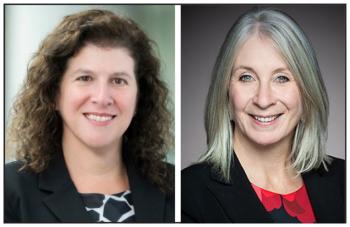Image Caption
Summary
Local Journalism Initiative Reporter
Windspeaker.com
In one of three reports delivered by federal auditor general Karen Hogan on March 19, she charged Indigenous Services Canada and the Canada Mortgage and Housing Corporation with continuing to fail in addressing housing needs in First Nations communities.
“Adequate housing is a basic human need. After four audit reports, I can honestly say that I am completely discouraged that so little has changed and that so many First Nations individuals and families continue to live in substandard homes,” said Hogan, who delivered a scathing report.
The findings are no surprise to Ontario Regional Chief Glen Hare.
“We’ve got a crisis. We have a major crisis of our housing,” he said. “We need more funding, reasonable funding for us to actually do some housing. Give it to us. Give it to the leadership of the communities.”
Hare said funding houses two at a time was insufficient to meet the needs of the 133 First Nations in Ontario.
“We need, at a time, probably 30 at a time. You multiply that by 133.
At least it'd be a start,” he said.
Hogan found that in the 20 years her office had been doing reports on housing in First Nations communities many of the same concerns persist.
The report states there was “no meaningful improvement” in housing conditions. From the fiscal year 2015/16 to the fiscal year 2021/22, the percentage of homes in need of major repairs decreased from 20.8 per cent to 19.7 per cent, while the percentage of homes that needed to be replaced increased from 5.6 per cent to 6.5 per cent.
According to joint work undertaken by Indigenous Services Canada and the Assembly of First Nations, $135 billion (up from a 2021 AFN report that set the price tag at an estimated $44 billion) would be needed to close the housing gap.
However, over five fiscal years, Indigenous Services Canada and Canada Mortgage and Housing spent only $3.6 billion on improving housing.
The report also states that little progress had been made in Indigenous Services Canada transferring the control of housing to First Nations, which is part of an overarching policy framework the department began to develop in 2020.
That framework has yet to be completed. Allocated funding of $108.89 million for transferring responsibilities for housing and infrastructure is to end in the 2025/26 fiscal year and will fall well short, says the report, as only one First Nation organization has advanced to the second of three stages in a 10-year transfer process.
As for the long-standing health hazard of mould, the reports states that neither Indigenous Services nor Canada Mortgage and Housing had addressed or tracked the houses with mould despite recommendations from previous auditor general reports.
Indigenous Services Minister Patty Hajdu's response to her department’s shortcomings when dealing with housing was to roll out the Liberal government's greatest hits—the passage of the United Nations Declaration on the Rights of Indigenous People and the accompanying action plan, child and family welfare legislation, and recently tabled water legislation—and added that it took time to change a colonial system.
“This is about a relationship, an ongoing relationship with Indigenous peoples and let's not forget that these systems were designed and rooted in an attempt to extinguish Indigeneity and an attempt to control Indigenous communities and an attempt many times to keep Indigenous communities far away from urban centres. So it's about shifting an entire system,” said Hajdu.
The Trudeau Liberals have been in power since 2015. Hajdu has been in her position as Indigenous Services minister since 2021.
When it was noted at a news conference by a reporter that Hogan had not laid the blame of the continual lack of action on colonialism or racism, Hajdu said it was “important that we call out when systems and structures are discriminatory because we can't change them if we don't name them.”
Hajdu said that the Liberal government had increased investments in housing by more than 1,100 per cent. While Hogan saw this increase as not keeping up with the needs, Hajdu said it represented “the first time in recent history, the proportion of people living in overcrowded homes has stabilized.”
Hajdu committed to “work towards” the recommendations provided by the auditor general and that work would be done “in the spirit of true partnership and self determination that First Nations people want to do this work through.”
As far as Hare is concerned, the auditor general’s report is testament to Indigenous Services Canada continuing to shortchange First Nations.
“They know we’re struggling in that sector when it comes to housing,” he said. “When is that going to change? It's got to change now. It’s got to.”
"The housing report reaffirms the housing crisis First Nations have been voicing for decades and the government's inability to effectively address it,” said Assembly of First Nations National Chief Cindy Woodward Nepinak in a statement.
She said that a commitment to First Nations housing would begin with dedicated funding in the 2024 federal budget, which is to be tabled April 16.
Local Journalism Initiative Reporters are supported by a financial contribution made by the Government of Canada.

